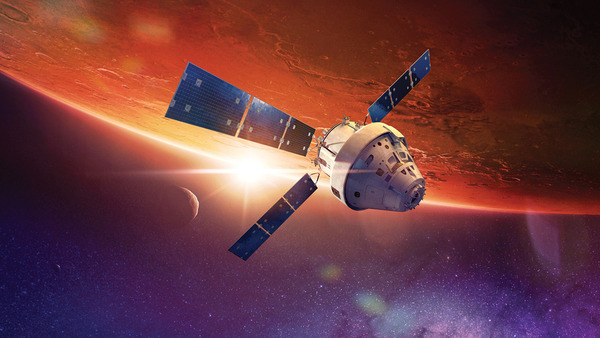The Local newsletter is your free, daily guide to life in Colorado. For locals, by locals.
When Lockheed Martin’s Orion Exploration Flight Test 1 (EFT-1) takes off from Cape Canaveral on December 4, it will be one small step forward for the south Denver company and one giant leap toward putting mankind on the surface of Mars. The December launch represents the first of two unmanned test flights that, in about 2030, will culminate (if all goes well) in the United States’ first attempt to deliver four astronauts to the red planet. This inaugural flight has been nearly a decade in the making, the result of President Barack Obama’s commitment to jump-starting the American space program following the 2003 Columbia tragedy and severe budget cuts at NASA during the recession. Designed and built by Lockheed Martin, the $375 million Orion will orbit the Earth twice before re-entering the atmosphere at 20,000 miles per hour. Eleven parachutes will slow the spacecraft for its final landing off the coast of the Baja California peninsula. This four-and-a-half-hour dress rehearsal will test 10 of the spacecraft’s main systems, including the propulsion, heat shield, and parachutes, along with conditions inside the minivan-size, four-seater cabin. Metal weights will simulate the crew’s mass on this flight, but once testing is finished, the next Neil Armstrong will take over. “This is our first step back into space,” says Matt Kramer, Lockheed’s director of external communications. “There’s going to be a time when an astronaut opens that capsule on the lander and puts the first footprints on Mars.”
Learn how the Orion project is bolstering the economy in south Denver.









